👉 Mouse over to check book details and availability in Library
 Prompt Engineering and ChatGPT
by
Prompt Engineering and ChatGPT
by
 Introduction to LLMs for Business Leaders
by
Introduction to LLMs for Business Leaders
by
 Let's Call You Dave: Decoding the Future with AI Dialogue
by
Let's Call You Dave: Decoding the Future with AI Dialogue
by
 AI & I: An Intellectual History of Artificial Intelligence
by
AI & I: An Intellectual History of Artificial Intelligence
by
 The Power of AI for Educators
by
The Power of AI for Educators
by
 From Gen Z to Gen AI: A College Student’s Guide to Success at School and at Work in the Age of Artificial Intelligence
by
From Gen Z to Gen AI: A College Student’s Guide to Success at School and at Work in the Age of Artificial Intelligence
by
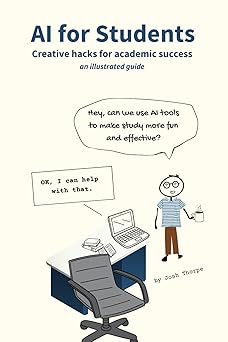 AI for Students: Creative hacks for academic success, an illustrated essential study guide on AI in education
by
AI for Students: Creative hacks for academic success, an illustrated essential study guide on AI in education
by
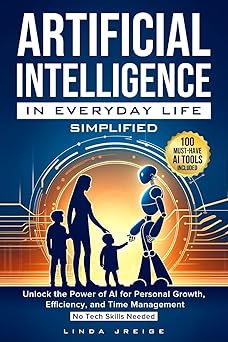 Artificial Intelligence in Everyday Life Simplified
by
Artificial Intelligence in Everyday Life Simplified
by
Want to suggest a purchase? Let us know by filling up this request form.
Submit a book purchase request
(For HKUST students and staff)
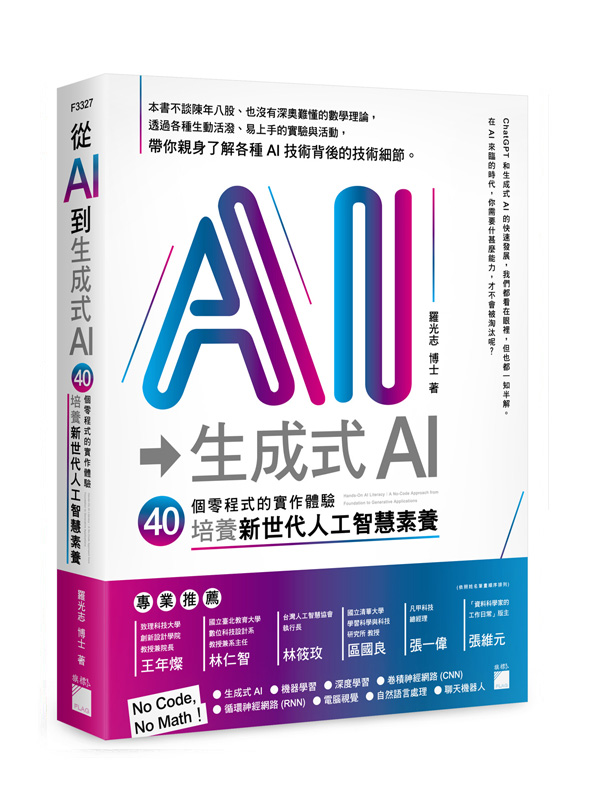 從AI到生成式AI: 40個零程式的實作體驗, 培養新世代人工智慧素養
by
從AI到生成式AI: 40個零程式的實作體驗, 培養新世代人工智慧素養
by
 AI醫療革命: GPT-4與未來
by
AI醫療革命: GPT-4與未來
by
 芯片简史
by
芯片简史
by
 未來的錯覺: 人類如何與AI共處
by
未來的錯覺: 人類如何與AI共處
by
 AI科學家李飛飛的視界之旅
by
AI科學家李飛飛的視界之旅
by
 超越AI的思考架構
by
超越AI的思考架構
by
 機器學習最強入門
by
機器學習最強入門
by
 AI世代與我們的未來: 人工智慧如何改變生活, 甚至是世界?
by
AI世代與我們的未來: 人工智慧如何改變生活, 甚至是世界?
by
 AI 2041:預見10個未來新世界
by
AI 2041:預見10個未來新世界
by
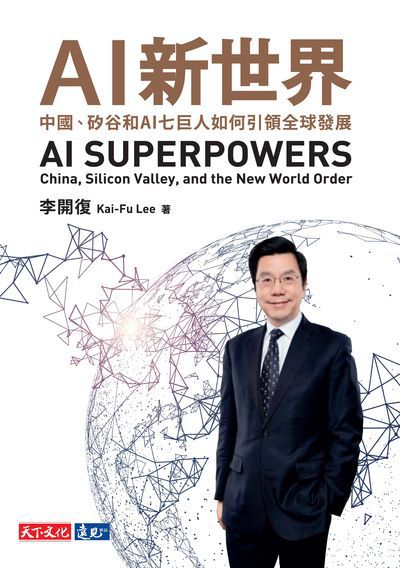 AI新世界
by
AI新世界
by
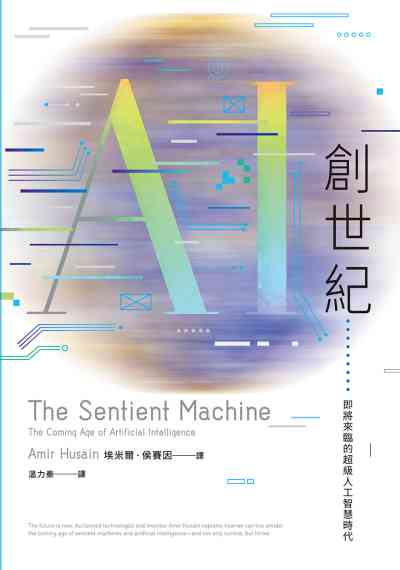 AI創世紀: 即將來臨的超級人工智慧時代
by
AI創世紀: 即將來臨的超級人工智慧時代
by
 Life 3.0: 人工智慧時代, 人類的蛻變與重生
by
Life 3.0: 人工智慧時代, 人類的蛻變與重生
by
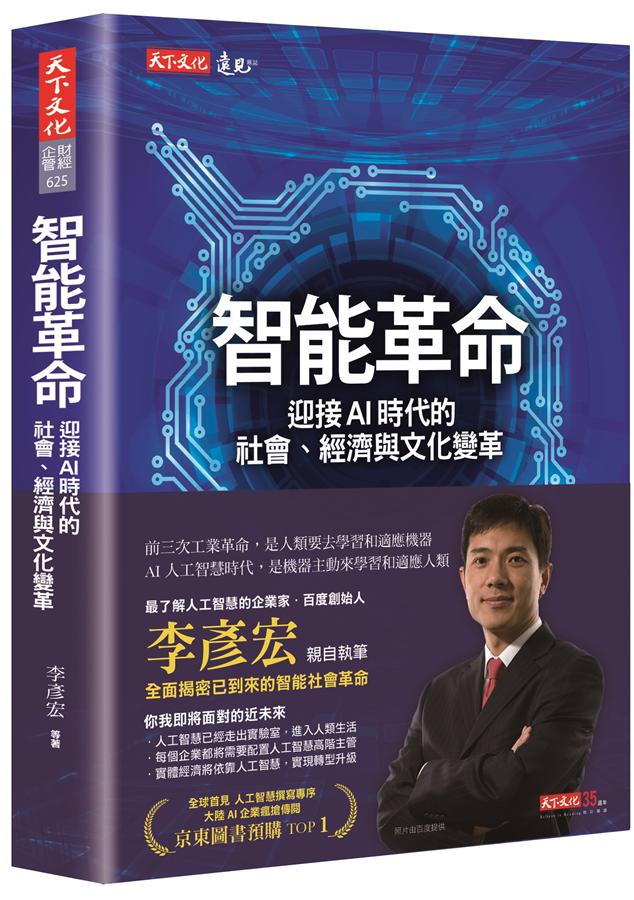 智能革命:迎接AI時代的社會、經濟與文化變革
by
智能革命:迎接AI時代的社會、經濟與文化變革
by
 AI 繪圖夢工廠
by
AI 繪圖夢工廠
by
 超智慧: AI風險的最佳解答
by
超智慧: AI風險的最佳解答
by
 AI生成時代的工作革命
by
AI生成時代的工作革命
by
 AI×人類演化未來報告書
by
AI×人類演化未來報告書
by
 AI大圖鑑
by
AI大圖鑑
by
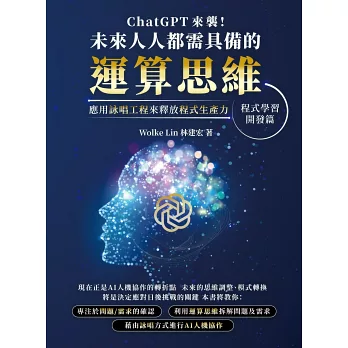 ChatGPT 來襲, 未來人人都需具備的運算思維! 應用詠唱工程來釋放程式生產力 : 程式學習開發篇
by
ChatGPT 來襲, 未來人人都需具備的運算思維! 應用詠唱工程來釋放程式生產力 : 程式學習開發篇
by
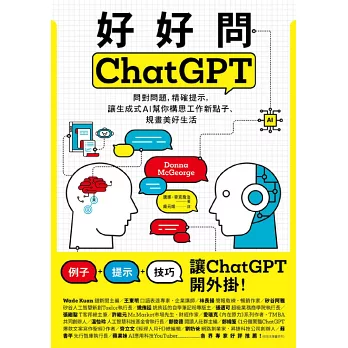 好好問ChatGPT: 問對問題, 精確提示, 讓生成式AI幫你構思工作新點子、規畫美好生活
by
好好問ChatGPT: 問對問題, 精確提示, 讓生成式AI幫你構思工作新點子、規畫美好生活
by
 翻倍效率工作術 : 不會就太可惜的 Excel × ChatGPT 自動化應用
by
翻倍效率工作術 : 不會就太可惜的 Excel × ChatGPT 自動化應用
by
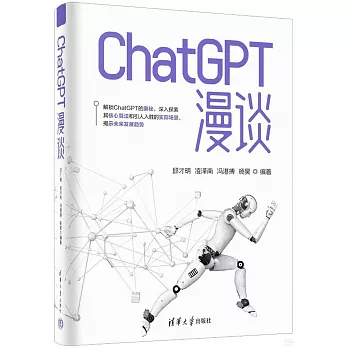 ChatGPT 漫谈
by
ChatGPT 漫谈
by
 生成式人工智能: 讀懂AIGC的奧秘
by
生成式人工智能: 讀懂AIGC的奧秘
by
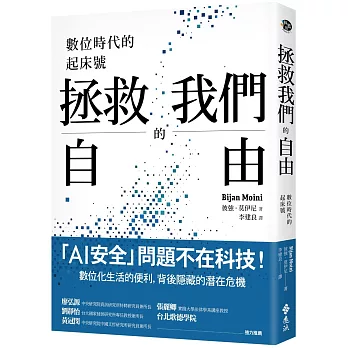 拯救我們的自由 : 數位時代的起床號
by
拯救我們的自由 : 數位時代的起床號
by
 文科生也可以輕鬆學會Web Scraper網路爬蟲與Power Automate X Excel大數據分析
by
文科生也可以輕鬆學會Web Scraper網路爬蟲與Power Automate X Excel大數據分析
by
 AI世界的底層邏輯與生存法則
by
AI世界的底層邏輯與生存法則
by